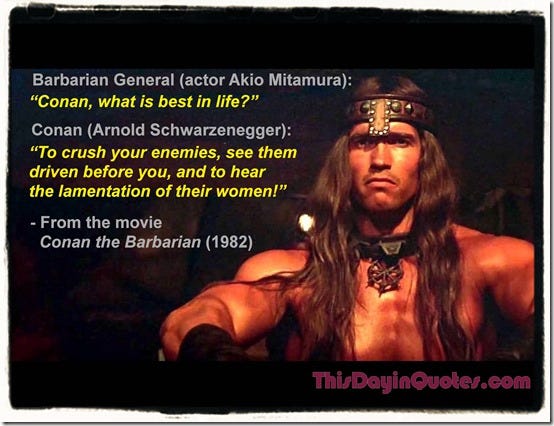On Trust, or Why I Hate Hegelians
How Tulpas Help You When Outside is Scarce
I sometimes experience surges of enmity towards groups of people.
Now it’s the time to rationalize that. I made a poll to check the vibes on this question. The poll was ‘Whom to trust? Options are: individuals, values, God / Gnon, or institutions.’
In this post I explain why I picked these options and what is the correct one.
Tl;dr: Hegelians choose values and they are wrong.
All quotations are from “The Philosophy of History” by Georg Wilhelm Friedrich Hegel With Prefaces by Charles Hegel and the Translator, J. Sibree, M.A., unless stated otherwise.
Tangent - we need to differentiate trust in individuals - which could be trustworthy or not - from trust in Individuals, where you expect Homo Economicus to do the right thing. Trust in Individuals is mob rule.
1 Four types of trust
Whom to trust? That is a fundamental question. We’re thrown into this world as babies, and we’re forced to trust our caretakers. Trust is built into us and we cling to it. Trust is part of our code, and interhuman trust hinges on the idea of know other people’s source code.
What is trust? A set of relinquishing control behaviors and corresponding inner states that model positive Estimated Value to a choice where Other is given control (freedom to affect) your value function.
Human source code for trust has many layers.
type 0 - ‘Smart social animal ‘ level’ - that’s how you can be affectionate with a cat, dog or a budgerigar parrot. It is highly focused on a specific individual and its strength rises with the intensity and length of knowing one another. Two tribes barely speaking with each other can trade on this basis. All ‘unspoken understanding’ situations have this spirit.
type 1 - social expectations towards 1-1 interactions - most animals will assume enmity, but those socialized expect and conform to expectations. Gym code, dating market equilibria are all examples of this. It is an extension of the type 0 via social proof. Trust spreads like a blockchain. Different ideological tribes are often forks of trust network that used to be one.
type 0b (subverted)- Tulpa - based trust - where you trust a smiling politician face on TV, or a savior figure in iconography. That is a deterritorialization of type 0, a tool evolved for one context gets hijacked into a novel one.
type 2 - Abstract trust - trust in ‘spooks’, intangible things - institutions, God / Gnon falls here, as well as values. These operate by hyperstition, inclusive fitness or centralized spin-doctors. This originated as a combination of type 1 with 0b. Institution is given a nice face AND many people signal commitment to it. How not to trust it?! Stirner noticed these first and hated them. He was all about type 0. His beliefs didn’t scale to say the least…
2 The Hegelian position
Tl;dr American motto ‘E pluribus unum’ (the unification drive) and its 1956 modern replacement ‘In God We Trust’ are an example of Hegelian thought - abstract centralized trust as opium for the masses.
Hegel says it was only in Protestantism that type 1 developed.
From the Protestant religion sprang the principle of the mutual confidence of individuals — trust in the honorable dispositions of other men; for in the Protestant Church the entire life — its activity generally — is the field for what it deems religious works. Among Catholics, on the contrary, the basis of such a confidence cannot exist; for in secular matters only force and voluntary subservience are the principles of action; and the forms which are called Constitutions are in this case only a resort of necessity, and are no protection against mistrust.
102, Introduction, Geographical Basis of History
A bold statement in general. I say that this only reflected the conditions of his period and the mutual confidence of individuals is more of a Hajnal line thing. Demographics and economics, not memes.
He sees valence in this difference. He sees the Protestant way as a superior one; one of Progress.
This is a recurring theme, and later we see him underline the ‘exertion of thought’ - type 2.
Cultivated Frenchmen therefore feel an antipathy to Protestantism because it seems to them something pedantic, dull, minutely captious in its morality; since it requires that Spirit and Thought should be directly engaged in religion: in attending mass and other ceremonies, on the contrary, no exertion of thought is required, but an imposing sensuous spectacle is presented to the eye, which does not make such a demand on one’s attention as entirely to exclude a little chat, while yet the duties of the occasion are not neglected.
441, Part IV The German World, Section III The Modern Time, Chapter 1 The Reformation
In the last part of the book he states his case for brainworms (‘Subjectivity’) most clearly:
Protestantism had introduced the principle of Subjectivity, importing religious emancipation and inward harmony, but accompanying this with the belief in Subjectivity as Evil, and in a power [adverse to man’s highest interests] whose embodiment is “the World.”
458, Part IV The German World, Section III The Modern Time, Chapter 3 Éclaircissement and Revolution
We can now see Hegelian position on this tetralemma is to trust God (Absolute), realizing itself through values in human hearts. So cozy, innit? Hegel doesn’t like trust in individuals as Stirnerian egos, but merely as Free conductors and liberators of values.
You probably did this already, but we can put that trust on a linear scale:
level 0 - inspectionable code
level 1 - individual
level 2 - institution
level 3 - value
level 4 - the Absolute / the Universe - Hegel’s trust is here
Tangent: FOSS is level 0, ‘Open”AI is level 2.
This problem is similar to the problem of intercession of saints in Catholicism. Hegel was a Protestant and thought it a superior notion, closer to the Absolute.
Surely if 4 is bad, we should only go for level 0? To be a PARANOID SCHIZO and double-check everything! That approach has…. limitations. Let’s see some steelmans for that.
3 Zero Trust mindsets
Like a hippie-inspired aging wine aunt, Hegel trusts the Universe. The urge to trust is a longhouse one. One God universe world is deceptively cozy.
The consciousness of Freedom first arose among the Greeks, and therefore they were free; but they, and the Romans likewise, knew only that some are free — not man as such. Even Plato and Aristotle did not know this. The Greeks, therefore, had slaves; and their whole life and the maintenance of their splendid liberty, was implicated with the institution of slavery: a fact moreover, which made that liberty on the one hand only an accidental, transient and limited growth; on the other hand, constituted it a rigorous thraldom of our common nature — of the Human. The German nations, under the influence of Christianity, were the first to attain the consciousness that man, as man, is free: that it is the freedom of Spirit which constitutes its essence.
page 32 of Introduction
Hegel is wrong in saying that Men are free. There are ALWAYS some feedback loops that you’re part of, and your welfare is NOT in their value function.
Some feedback loops, the most crude, barbarian ones directly pit one man against another in zero sum games. Zero sum? Only from the utilitarian perspective!
Conan and his opponent’s payoff matrix both prefer a glorious end in battle to a long and peaceful life, with victory of course being the best. The heroic choice Achilles made.
On the level of inspection, it’s quite close to 0, with the code being the Code of the warrior, the Way of the Blade. Life of a warrior is close to the Outside.
But what is one supposed to do in the modern age? Fight for even better B2B SaaS?
How to get closer to Gnon, level trust-0? That has limitations.
4 The problem with accessing Gnon/code directly
This ties back to the discussion of greebling. Levels experience increasing degreebling. To no one’s surprise I’ll repeat the argument from the degreebling series: degreebling is cosmically inevitable.
The Wild is limited. Only the top part of the industrial surplus is at the cutting edge.
Encounters with the Outside - as we know from Lovecraft - are rare and rarely survivable. We should imagine our encounters with the Outside not as a constant battle on all fronts, but rare skirmishes we only get limited information about from the scant survivors.
Quotidian life of Shire is far from the Outside. Shire is Slack. That’s why Gnon is the Most Merciful.
Tradition is a chain of heroes returning from the Underworld (realm of the Outside) and bringing back wisdom. That wisdom might be weird or foolish when going back to Plato’s cave, but it wasn’t the hero who generated it. It was Gnon, through selection.
What I’m saying here is not novel, it has many parallels with Christian Mysticism about Logos being ordinarily hidden, but preserved in an institution. Other traditions must have this too. I say this more through induction than knowledge.
Inspecting the code directly is clear and clean in some cases. These cases constitute what in the 19th century exploded as ‘Science’. But there are other ways of knowing.
Sometimes checking everything is not possible. In some situations even ‘trust and check’ are not viable. The deep reality is in a certain cold sense unknowable, be it through Humean critique of induction, underdetermination of theory by evidence, or observer effects. Bayes is only a heuristic. GL with the Solomonoff Induction, rats!
What should we rely on if not the code?
5 If not Gnon, what is the Way?
We’re stuck in a world where we rarely meet the Absolute ( level 4) rarely, and code (level 0) has limitations. We’re stuck in Samsara of coping with these and pragmatically using the middle terms.
Dao which can be named is not the eternal DAO.
We are forced to trust, but often we can trust AND check.
That is a conflict that is not escapable. It should be embraced.
Crypto tried to deterritorialize into level 0, but failed mass adoption and much of it fell to centralization.
Organic institutions are underrated right now, especially in the West. The West trusts values more than institutions. Eastern thought feels to be to respect them more right now. CCP is an Old One by itself, detached from the values of capitalism or communism, nominally serving the Chinese people. That populist note, also played by Tucker Carlson, is an attempt to reinstantiate direct benefits - trust type 0 instead of type 2. There is something ‘close to the code’ in that.
There is alpha in well-made institutions.
There is also value in using trust 0b type abstractions - tulpas. eigenrobot talks about this.
I strongly vibe with that approach and elaborate this and other pagan mindset arguments over in my 7 part series on ‘pagan/accelerationism’. Subscribe as the next post is about making decentralized AGI…
Here’s the first post of the series:
All this discussion of trust obviously translates into discussion of AI alignment. This post is general or even human focused, but if AI alignment is your topic you might give it a re-read through alignment lens.






